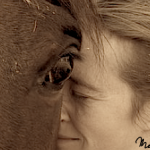Practice makes perfect?
| April 7, 2016 | Posted by Melinda under Uncategorized |
Have you ever had an article or study be so incredibly provocative, yet so simple that you couldn’t get it out of your mind?
Not for a month.
Not for a year
Not even for 3 years.
How about 5 years?
What was so intriguing I spent the afternoon digging it up again? This study, which was published in 2009, I couldn’t get it out of my mind because it seemed to smash to bits what I had taken as fact for so many years.
The difference between the amateur and pro was 10,000 hours of practice.
This theory is attributed to Malcolm Gladwell’s book “Outliers“, which was published 2008, but I feel like my mom and I threw around that concept well before then so I’m not sure where we might have picked it up before then.
We comforted ourselves at concerts when we longed to be just that good. We are both moderately talented when it comes to music, and by reminding ourselves of the 10,000 hour rule, it spoke of possibilities of if we just put in the time, and a concrete reason we were likely to remain amateurs. (but now she plays in an honest to goodness band that is NOT made up of family members so is that considered pro now? )
Aside from music, the other place I hear of the 10,000 hour “rule” come into discussion is sports. Is the difference between your riding and whatever top name that is going to the olympics (you can tell I have TONS of time to follow trends in sports eh?) merely 10,000 hours of “correct” practice?
Is time, drills, and repetition the key to learning a skill?
Let’s exam “Exhibit A”. In case you opened up that study link in a new browser, had your eyes glaze over and were desperately hoping I was going to neatly summarize it for you, I shall now point you over here.
Go ahead. I’ll wait here.
Now.
Wasn’t that interesting?
Turns out it’s the HOW, not the HOW MUCH that matters.
Right right right. You have to practice CORRECTLY in order to improve. Otherwise, bad habits and all that jazz.
But think about it. Does practice make perfect…eventually…through trial and error?
Not according to this study. Perfect practice makes perfect.
Think about the implications.
The number of reps aren’t key other than you do as few as possible that are as close to perfect as possible. There’s no “just foolin’ around” – it’s isn’t helpful or even neutral. It actually harms the eventual performance or test.
Here’s a recap of some of the significant findings (taken from the article I linked to a couple of paragraphs ago):
- Practicing longer didn’t lead to higher rankings.
- Getting in more repetitions had no impact on their ranking either.
- The number of times they played it correctly in practice also had no bearing on their ranking.
What did matter:
- How many times they played it incorrectly. The more times they played it incorrectly, the worse their ranking tended to be.
- The percentage of correct practice trials did seem to matter. The greater the proportion of correct trials in their practice session, the higher their ranking tended to be.
I think as horse people we are more likely to see how this applies – you are always training or horse (for better or worse) even when you aren’t “seriously practicing”. You know the importance of getting the correct behavior every time.
But now I want you to think about the last time you did a training session with your pony. Something like a walk-canter transition.
How many times did you do it incorrectly? How many time correctly?
If you are like the vast majority of people during a training session, I would guess that there were a lot of bad ones, a few good ones, and one or two brilliant ones.
Our thinking is good – horses (or at least the ones I’ve owned) don’t appreciate drilling the same thing over and over. The “release of pressure” when they’ve done something right by NOT asking them to repeat it over and over is part of how I communicate that they have done a good job.
I would argue that the error lies in the number of times we did it WRONG, not the number of times we asked and got it right.
How do we reduce the number of “wrong” answers by the horse?
- Making sure we’ve done all the preliminary building blocks and adequately prepared the horse
- Making sure we are asking the horse to do something that it is capable of doing correctly
- Reassessing sooner rather than later if the horse gives the “wrong answer” more than once.
8 strategies were identified by the researchers (again, summarized by the earlier linked article);
- Playing was hands-together early in practice.
- Practice was with inflection early on; the initial conceptualization of the music was with inflection.
- Practice was thoughtful, as evidenced by silent pauses while looking at the music, singing/humming, making notes on the page, or expressing verbal “ah-ha”s.
- Errors were preempted by stopping in anticipation of mistakes.
- Errors were addressed immediately when they appeared.
- The precise location and source of each error was identified accurately, rehearsed, and corrected.
- Tempo of individual performance trials was varied systematically; logically understandable changes in tempo occurred between trials (e.g. slowed things down to get tricky sections correct).
- Target passages were repeated until the error was corrected and the passage was stabilized, as evidenced by the error’s absence in subsequent trials.
OK. Now some of that was musical jargon, but overall the strategies focus on a couple of concepts
- Errors are addressed immediately, not repeated (or made in the first place) if possible, even if it means slowing down or stopping before continuing.
- Mental practice and visualization prior to the actual physical act of playing the piece.
These can absolutely be applied to riding. Especially the last point – when my husband was getting his pilot’s license he was told to “armchair fly”. Literally close his eyes while sitting in the living room and fly the plane in his mind. His instructor could tell when he wasn’t doing it because it make THAT big of a difference.
The bottom line of the study was that what separated the best players in this study from the rest was how they handled their mistakes in practice.
How do you handle your mistakes?
BTW even with “deliberate” minimize-the-error-practice, it seems that there are plenty of studies refute the “all you need is more practice hours” theory. This Princeton 2014 study (meta analysis actually, which I was always taught can be a bit dicey to rely on, but hey – we are having fun with a topic here, not trying to decide on a life or death procedure) attributes deliberate practice as a very small factor in differences of performance. However, that doesn’t mean that regular old joes like me can’t benefit from “practicing like the pros” and getting that much better.










[…] Farley would have probably completed 100’s in the hand of any idiot. (Here’s an article I wrote in April about the 10k hour rule and what kind of practice may make the biggest […]
I love this post. In nursing, progressing from novice to expert commonly use Patricia Benner’s theory: http://currentnursing.com/nursing_theory/Patricia_Benner_From_Novice_to_Expert.html. The study you site above is much more interesting/your reflection on it. I find that visualizing/talking through steps prior to performing them assist me with nursing practice and additionally, slowing the steps down until they become a fluid muscle memory with the “right” way really helps my nursing practice. I’d like to keep this mindful practice with other tasks/skills -thanks.
Have to admit I clicked on the site and tried to read through it and my eyes crossed…
Yes! Tried to find something more succinct but was limited by time. Basically: novice to expert takes time. Be patient as a novice you may only be able to focus on task based stuff, not the bigger picture.